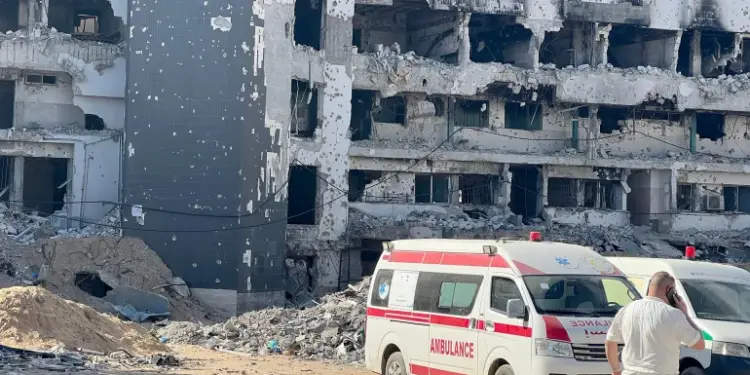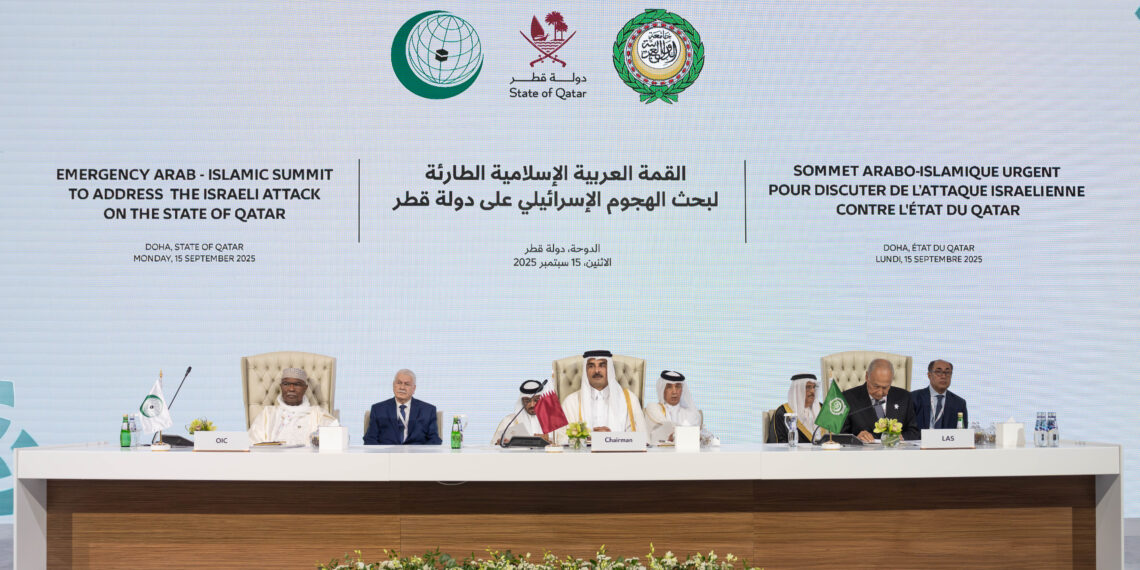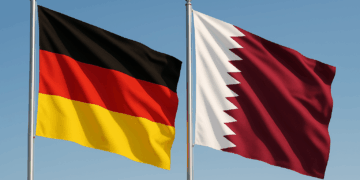The World Health Organization (WHO) has warned of the deteriorating health and humanitarian situation in the Gaza Strip, stressing that the health system in the Strip is facing unprecedented pressures, amid a severe shortage of medical supplies and fuel, and significant restrictions on the movement of patients and medical personnel.
In statements to Asharq Al-Awsat newspaper, Dr. Hanan Balkhy, WHO Regional Director for the Eastern Mediterranean, said, “The health situation in Gaza is witnessing a rapid deterioration due to the ongoing hostilities, the blockade, and the lack of basic components for the operation of health facilities.”
According to the organization, only 18 of 36 hospitals are currently operating, most of them in extremely dangerous conditions, with severe shortages of fuel and medical supplies. Balkhy also indicated that approximately 90% of areas in Gaza are subject to evacuation orders or classified as closed military zones, restricting the access of patients and humanitarian aid. The organization reported that intensive care units, emergency departments, dialysis units, and oxygen generators are at risk of complete shutdown, given the fuel shortage that has lasted for more than 120 days. Hospitals are also facing a significant increase in the number of injured and an increase in cases of severe malnutrition, particularly among children and pregnant women.
According to the organization’s data, 77 people died from malnutrition last July, including 27 children under the age of five. More than 20,000 children have received treatment for severe malnutrition since April, including 3,000 in critical condition. More than 40% of pregnant and breastfeeding women suffer from severe malnutrition.
Balkhi explained that only four therapeutic feeding centers are still operating in Gaza, but they face a severe shortage of supplies, with fears that they may cease completely by mid-August.
She also noted that more than 14,000 patients are in need of medical evacuation outside the Strip, including cancer patients and children in critical condition, given the collapse of the health infrastructure and the lack of essential medicines such as antibiotics, insulin, and cancer medications. The World Health Organization (WHO) indicated that restrictions on the entry of international medical teams are exacerbating the situation, with 58 doctors denied entry since last March, while only 16% of the organization’s 2025 operational response plan for Palestine has been funded.
On another note, Balkhi emphasized that the organization faced significant security challenges, including attacks on its staff residences in Deir al-Balah and the evacuation of its staff under shelling. One staff member remains detained, calling for his immediate release.
Despite these challenges, Balkhi explained that the organization has been able to bring in 24 aid trucks since the beginning of August, including medicines, medical supplies, and laboratory equipment. It has also supported the evacuation of 47 patients to several countries.
The organization reiterated its call to ensure the flow of medical supplies and fuel, and to provide protection for health workers and medical facilities in accordance with international humanitarian law. It affirmed its commitment to continuing its work in Gaza and strengthening its humanitarian response in cooperation with international partners.







